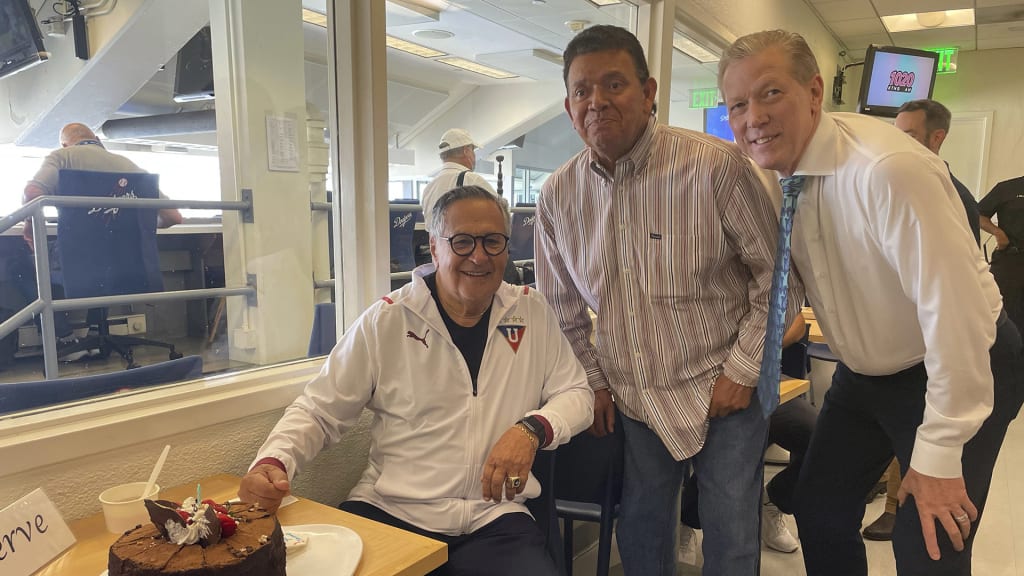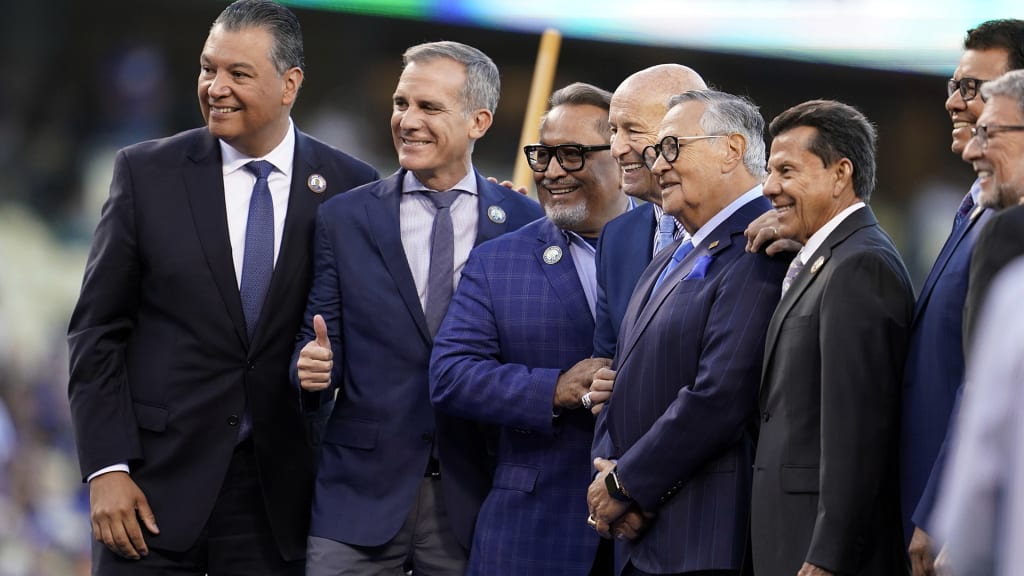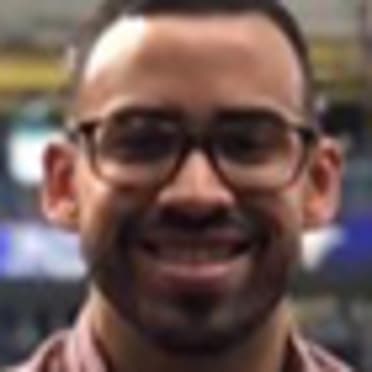LOS ANGELES -- The video board at Dodger Stadium panned to the Spanish broadcast booth, a place where Hall of Famer Jaime Jarrín has worked as the Spanish-language voice of the Dodgers for more than six decades.
As the mariachi music blasted through the speakers, Jarrín stood up from his chair one last time for a regular-season game and waved to the receptive crowd. Freddie Freeman immediately stopped rolling the ball to the other infielders, taking his glove off to join the ovation.
Dodgers left-hander Julio Urías tipped his cap. Manager Dave Roberts encouraged the crowd to get even louder. Though Jarrín will continue through the postseason, this week was all about the 86-year-old. It’s the least anyone could do after he gave his entire adult life to baseball and the Dodgers.
“When you’re Latino and you root for the Dodgers, you see that name and you see [longtime scout] Mike Brito, and you see [Fernando Valenzuela's] name, I feel like they’re all connected,” Urías said. “And I’m really happy that I’ve gotten a chance to know him. It’s been a blessing.”

This past Saturday, the Dodgers honored Jarrín with an on-field ceremony. The celebration ran about 11 minutes long, delaying the start of the game. But it still wasn’t long enough to fully describe what Jarrín has meant to Dodgers fans who fell in love with baseball through his voice.
Jarrín came to the United States from Ecuador in 1955. His first job came with KWKW, the radio station that eventually partnered with the Dodgers to broadcast games in Spanish in 1958. Once the merger happened, Jarrín was approached about becoming one of the two broadcasters. Having limited knowledge of baseball, Jarrín initially said no.
“William Beaton, the owner of KWKW, told me, ‘I need two journalists,’ and he looked at me and said, ‘Jaime, I want you to be one of them.’ Then I looked at him and said, ‘Mr. Beaton, thank you so much, but I can’t accept that job because I don’t know baseball well enough to get on a microphone and narrate a baseball game.’”
In the middle of that conversation, Beaton told Jarrín that he was going to give him one year to learn everything he could about the game. Jarrín responded by listening and studying anything and everything he could get his hands on. Then, in 1959, Jarrín was hired to work alongside René Cárdenas, who some people forget was the first Spanish play-by-play voice in MLB history.
“I consider my career as a book with two chapters,” Jarrín said. “The first chapter is of Jaime Jarrín, the radio personality, and then I began my career in baseball. I’m a unique case, because I got to broadcast big league games without having watched a single baseball game in my life.
“In Quito, we don’t play baseball at all. But I started to get curious about baseball once I saw how many people were watching and listening to the 1955 World Series between the Brooklyn Dodgers and the New York Yankees. I never thought the Dodgers would come to Los Angeles.”
Once in Los Angeles, the Dodgers looked for a way to get the Latino demographic more involved -- particularly the Mexican community -- which, historically, had preferred to watch soccer over baseball. Then Fernandomania took the city by storm in 1981.

After getting his well-documented start on Opening Day in '81, Valenzuela became one of the most popular and beloved Dodgers of all-time. Every Valenzuela start became a celebration for a Mexican community that has a complicated and emotional history with Chavez Ravine.
As Fernandomania grew, so did the media requests. Valenzuela became the baseball version of a rock star, but he didn’t speak much English. That’s when Jarrín stepped in, serving as Valenzuela’s interpreter. For the Spanish-speaking community, Jarrín also became a legend himself as he became the voice people grew up listening to while Valenzuela performed on the mound.
“Fernandomania was something extraordinary,” Jarrín recalled. “What he did for baseball, you can’t just ignore that. What he did, nobody else has done.”
Jarrín and Valenzuela ultimately both accomplished something nobody had ever done. In recognition of his incredible baseball life, Jarrín became the first Spanish-speaking broadcaster elected to the Baseball Hall of Fame, as he was honored with the Ford C. Frick Award in 1998.
“His influence, not only here in Los Angeles, but for everyone that speaks Spanish, is enormous,” said Pepe Yñiguez, Jarrín’s longtime partner in the booth. “People always say the Americans have Vin Scully and the Latinos have Jaime Jarrín.”
As he heads into retirement following the postseason, Jarrín has accomplished -- and seen -- just about everything in the game. He believes the time is right for his retirement, while acknowledging he could do it longer if he wanted. Now, he’ll turn his attention to helping the Latino community.
But, in reality, that’s already something he did for over six decades, just by bringing Dodger baseball to several generations.
“My biggest satisfaction is having created a large amount of new baseball fans,” Jarrín said. “I feel so much joy watching so many Latin American baseball players in Major League Baseball.”
